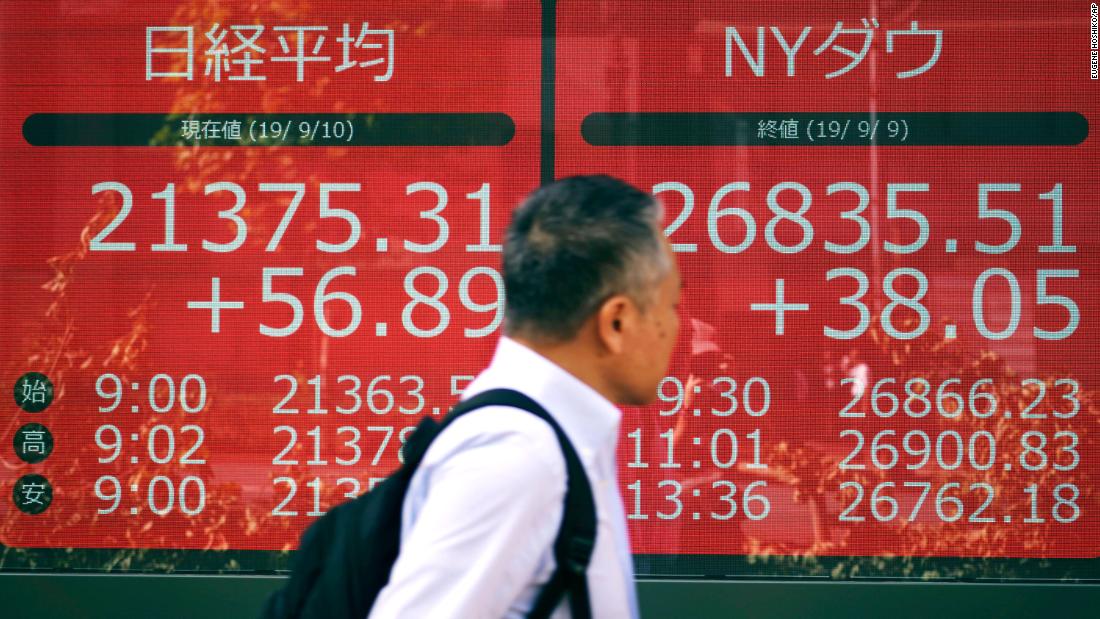Asian stocks mostly drift higher as China shakes up its foreign trade

Japan’s Nikkei (N225) and South Korea’s Kospi (KOSPI) rose 1% and 0.9%, respectively, while Hong Kong’s Hang Seng (HSI) gained 1.6%. But China’s Shanghai Composite Index (SHCOMP) was about 0.2% in the afternoon.The European Central Bank meets Thursday. Markets are waiting to see whether the ECB will release more stimulus to boost the slowing Eurozone economy. The Federal Reserve, meanwhile, will hold its policy meeting next week. Fed Chairman Jerome Powell recently repeated his pledge to do whatever it takes to keep the US economy growing. The comments were widely seen as a signal that policymakers are likely to cut rates again. At the Fed’s July meeting, policymakers cut rates for the first time since 2008.China opens up foreign investmentSeparately, China announced Tuesday that it would make it easier for global institutional investors to purchase Chinese equities and bonds by removing restrictions on a couple of investment programs.”This move marks another milestone for China’s financial reform and opening up,” wrote analysts at Fidelity International in a research note. “Undoubtedly, this will facilitate the efficiency of foreign investors to participate in the domestic financial market and help link the Chinese financial market to the world.”David Chao, Invesco’s global market strategist for Asia Pacific, called the move “largely symbolic.” One of the measures China took was to remove a $300 billion cap on foreign investment; Chao noted that only a third of that cap is being used right now. Still, he said, “it will make it easier for offshore investors to access the Chinese markets in a more meaningful way.”An ‘historic’ deal with ArgentinaChina is also going to allow the import of soybean meal from Argentina, according to a Tuesday announcement from Argentina’s agricultural ministry. The ministry called it an “historic agreement,” adding that soybean meal is Argentina’s largest export product.It’s the latest attempt by China to diversify its sources of agricultural imports since the country’s trade war with the United States began, according to Tian Yaxiong and Shi Lihong, analysts at China Futures, a futures brokerage firm based in Chongqing. American soybean farmers have been hit particularly hard by the trade war, considering China was their biggest market before the trade war hit and buys a majority of the world’s soybean production.If China doesn’t resume purchases of US soybeans this year, Tian and Shi wrote, then Argentina is capable of filling the gap in demand. Argentina isn’t the only South American country that China’s soybean industry is turning to because of the trade war — Chinese farmers have also stepped up imports from its neighbor, Brazil. CNN Business’ Donna Borak contributed to the report.







